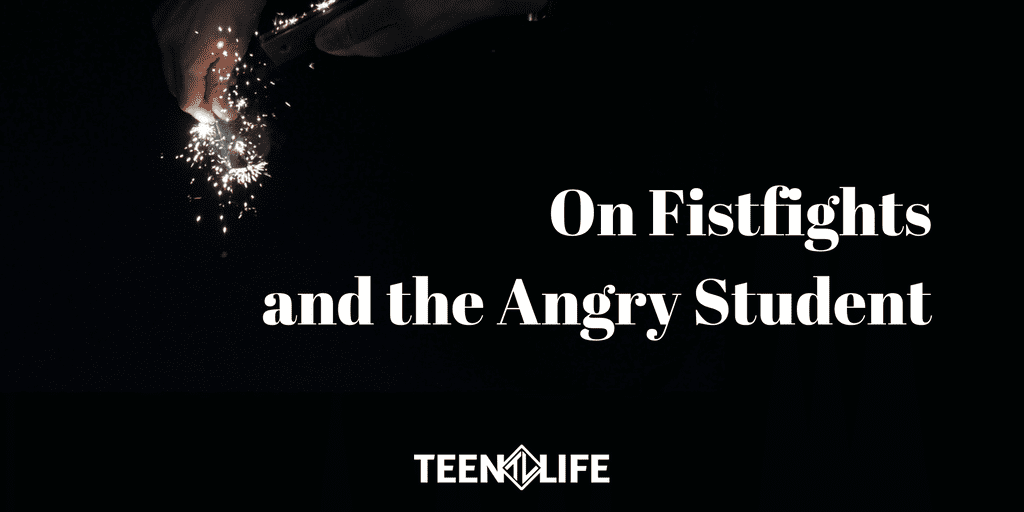Last week I had a “first” in one of my Support Groups.
About fifteen minutes into group, two young men on opposite ends of the table started talking at each other, but in quiet voices. I checked in on both of them to make sure everything was okay – and they assured me they were fine. Then before I knew it, the two young men were in an all-out brawl until the staff at our location broke up the fight.
It all happened so quickly and without warning that it took me a little while to recover from the incident. I just didn’t expect for something like that to happen – especially in a place that was supposed to be safe for students.
This has gotten me thinking a lot since then about anger – especially within adolescents. This situation had been brewing for a while, obviously – but the simple fact remains that two young men decided to take all of their anger and frustration out on each other – all because of a series of softly spoken words across the table.
When anger flashes like this, we have to assume it all exists just under the surface. It is gasoline waiting for a spark, a pressure cooker just at the limits. For so many teenagers, life has happened in such a way that lends credence to cascades of overwhelming negative emotions.
In my own life, I find I get the angriest when things seem overwhelming or out of control. Whenever I lose my sense of agency or ability to affect change, I get angry. And I am often surprised about the nature and intensity of the anger when it comes over me.
If I can feel bouts of anger as a privileged white middle-class male from a good family, imagine how difficult it must be for any teenager in a situation they feel they have no control!
The truth is – many of us do not remember what it feels like to be a teenager. I know I barely remember. Spending time around teens, I sense an anxiety and feeling of hopelessness about their future and what choices they have. While many would say this upcoming generation is more privileged and has more opportunities than ever – in reality, they have less certainty about their future.
This coupled with increasingly taxing school/family/social environments and we see situations like the story above.
So much of this immeshed, but those of us who love and serve teenagers can help untangle these emotions – even a little bit.
1. Anger should not be met with anger. When a student explodes or loses control of their anger, obviously make sure they are safe – then let them get it out. As an adult, you get the opportunity to model a healthy response. When anger is met with anger, we will not find de-escalation. We only find division and pain.
2. Agree upon a viable source for the anger. These outbursts are not the teenager being a jerk. These emotions come from a real place of pain and frustration. Identifying the frustration and giving it legitimacy leads to a healthier discourse about how to better handle those strong emotions.
3. Find a way to help the student apologize. Owning up to the damage we do through our anger can lead to healing.
4. Validate the human emotion of anger – then find a healthy way to deal. We all get angry. It is normal and healthy. Yet, the ways we handle anger become the thin line between trouble and success. Sometimes if we handle our anger just a little better – things would turn out differently.
There are many resources available online and locally to help learn new skills and strategies for dealing with anger. Often times it is just finding a safe person to express frustrations.
We would all be a lot better if we found a healthy way to deal with our anger.
What ways have you seen people deal with anger in a healthy way?

